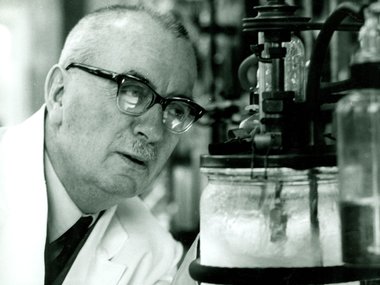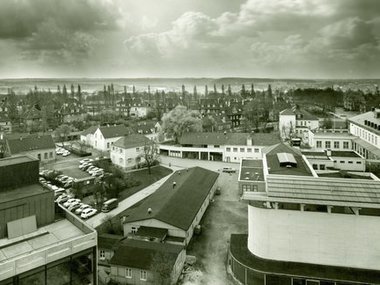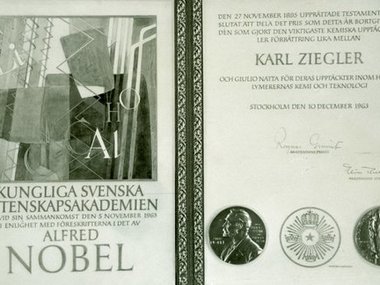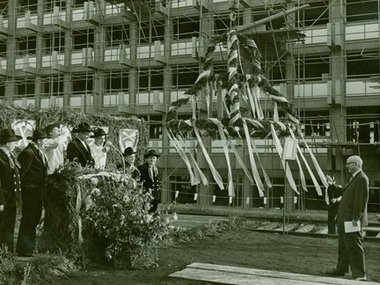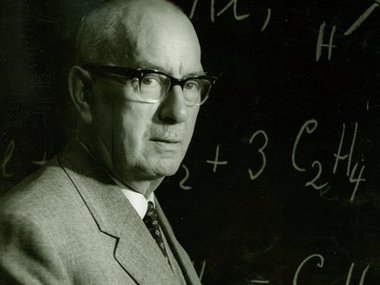The Nobel Prize Laureate: Karl Ziegler as Director of the Institute (1943-1969)
After Franz Fischer requested his retirement for health reasons in 1943, a chemist whose re-search was to receive the highest recognition took over the directorship in the middle of the war.
Under Karl Ziegler (1898 -1973), the focus of the Institute’s work shifted, moving away from Fischer-Tropsch synthesis and research for early industrial use towards basic research, which Ziegler described as “general synthetic chemistry”. The main focus here was on polymeriza-tion reactions of olefins.
This led to the discovery in 1953 of a low-pressure polymerization process for ethylene, in the presence of organometallic mixed catalysts. The discovery of these mixed catalysts made of aluminium and titanium compounds changed not only chemistry but also everyone’s day-to-day lives: modern plastics were born! These proved to be superior to previously manufactured products not only because of their superior properties but also because they were much more economical to produce. The chemical industry subsequently succeeded in making plastics made of polyethylene into a mass product that was affordable for the general public.
The process was first patented on 17 November 1953, ensuring that the Institute was able to generate high levels of revenue from licensing for decades. Karl Ziegler received the Nobel Prize in Chemistry for his discovery on 10 Dezember 1963 – together with Italian researcher Giulio Natta.
